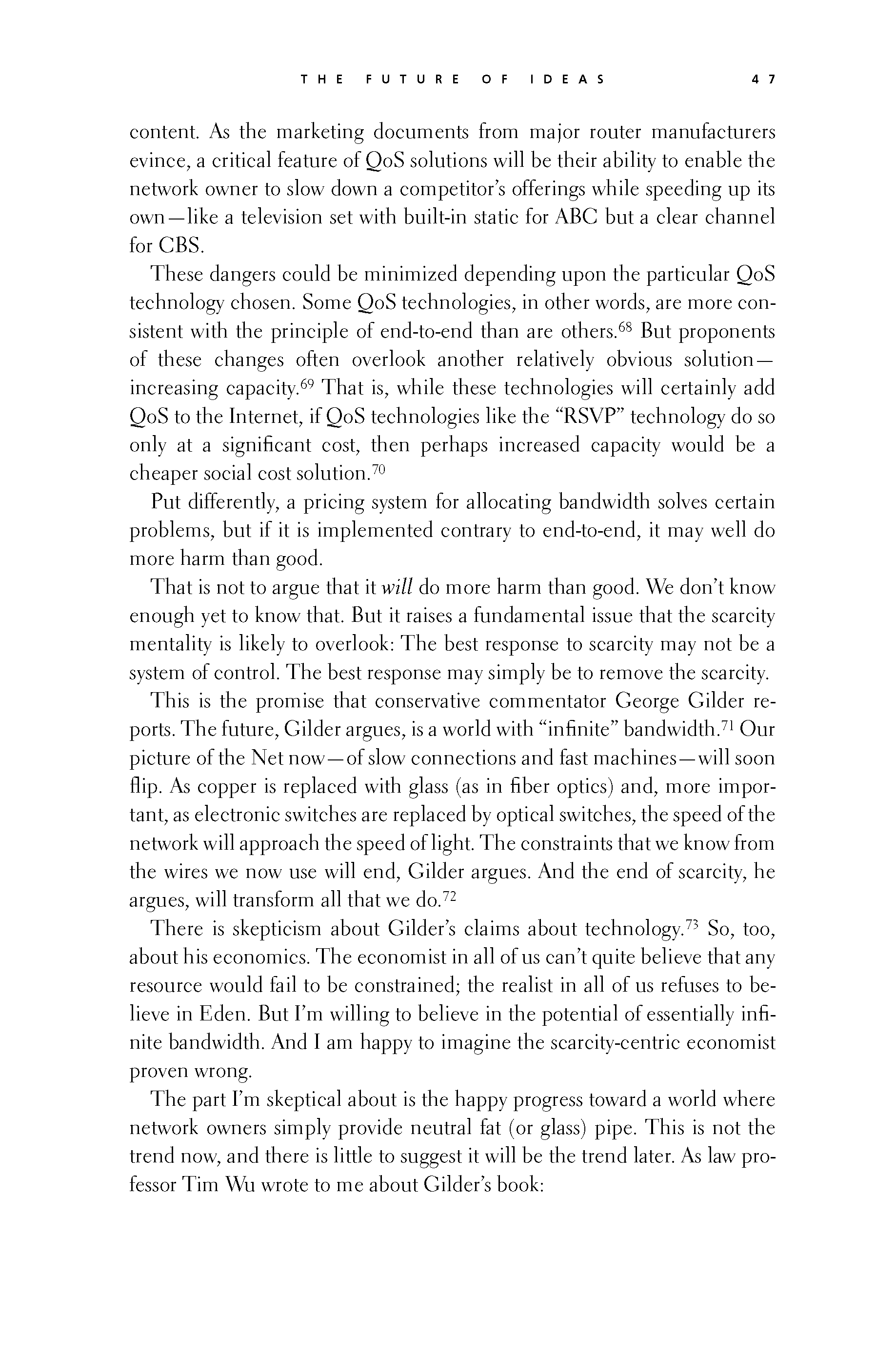 p046 _
-chap- _
toc-1 _
p047w _
toc-2 _
+chap+ _
p048
p046 _
-chap- _
toc-1 _
p047w _
toc-2 _
+chap+ _
p048
content. As the marketing documents from major router manufacturers
evince, a critical feature of QoS solutions will be their ability to enable the
network owner to slow down a competitor's offerings while speeding up its
own -- like a television set with built-in static for ABC but a clear channel
for CBS.
These dangers could be minimized depending upon the particular QoS
technology chosen. Some QoS technologies, in other words, are more con-
sistent with the principle of end-to-end than are others.[3-68] But proponents
of these changes often overlook another relatively obvious solution --
increasing capacity.[3-69] That is, while these technologies will certainly add
QoS to the Internet, if QoS technologies like the "RSVP" technology do so
only at a significant cost, then perhaps increased capacity would be a
cheaper social cost solution.[3-70]
Put differently, a pricing system for allocating bandwidth solves certain
problems, but if it is implemented contrary to end-to-end, it may well do
more harm than good.
That is not to argue that it _will_ do more harm than good. We don't know
enough yet to know that. But it raises a fundamental issue that the scarcity
mentality is likely to overlook: The best response to scarcity may not be a
system of control. The best response may simply be to remove the scarcity.
This is the promise that conservative commentator George Gilder re-
ports. The future, Gilder argues, is a world with "infinite" bandwidth.[3-71] Our
picture of the Net now -- of slow connections and fast machines -- will soon
flip. As copper is replaced with glass (as in fiber optics) and, more impor-
tant, as electronic switches are replaced by optical switches, the speed of the
network will approach the speed of light. The constraints that we know from
the wires we now use will end, Gilder argues. And the end of scarcity, he
argues, will transform all that we do.[3-72]
There is skepticism about Gilder's claims about technology.[3-73] So, too,
about his economics. The economist in all of us can't quite believe that any
resource would fail to be constrained; the realist in all of us refuses to be-
lieve in Eden. But I'm willing to believe in the potential of essentially infi-
nite bandwidth. And I am happy to imagine the scarcity-centric economist
proven wrong.
The part I'm skeptical about is the happy progress toward a world where
network owners simply provide neutral fat (or glass) pipe. This is not the
trend now, and there is little to suggest it will be the trend later. As law pro-
fessor Tim Wu wrote to me about Gilder's book:
[[47]]
p046 _
-chap- _
toc-1 _
p047w _
toc-2 _
+chap+ _
p048